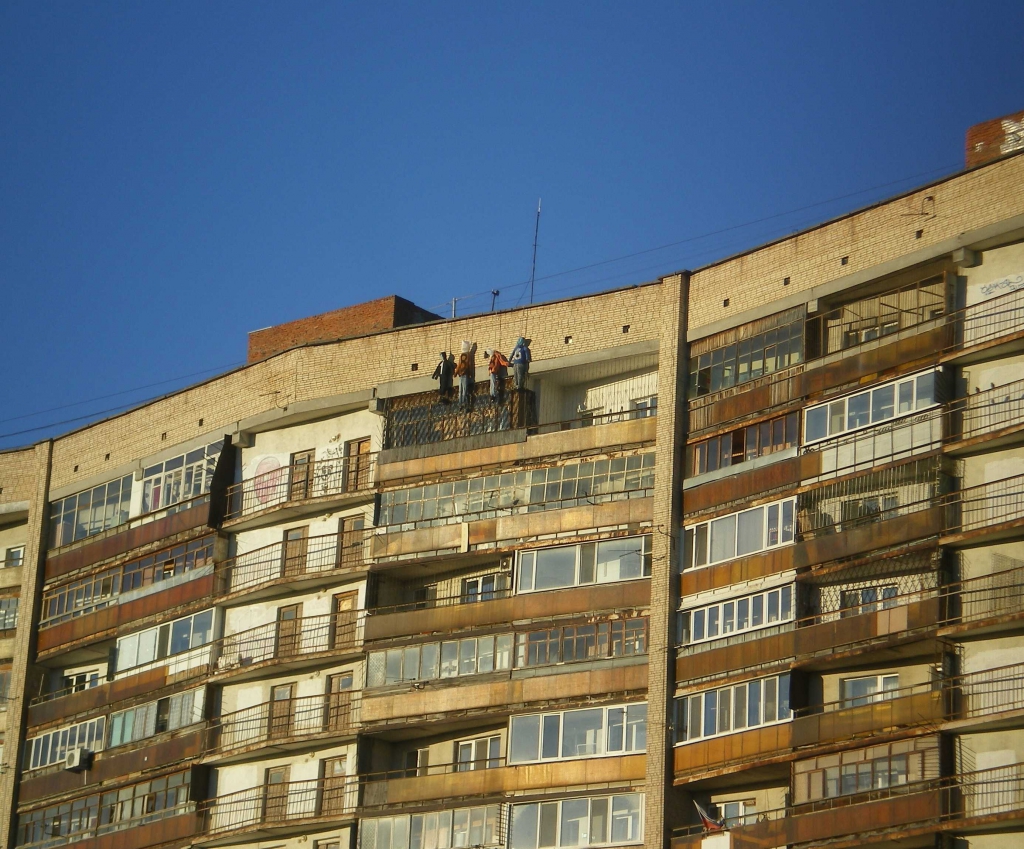
More than 5,000 migrant workers e-business JCY Aug. 16 demolished a guard tower at the rebellion that erupted in the place of detention in Malaysian industrial city of Johor Baru in mid-August. During clashes with police officers, 200 special forces used debris, stones and even plucked from walls of fire extinguishers. The battle lasted for 7 hours, until the morning.
The clashes erupted after the death on August 4 one of the workers, whose employer refused to send to the hospital. 20-year-old Nepalese boy was hired to work with a high temperature.He concealed it from the manager, but when he could no longer hide their illness, infuriated the host refused to let him go for treatment before it is too late. The next day at 7 o'clock worker died.
The workers demanded the establishment of mini-clinics in factories assembling electronic and wage increase. After the rebellion of the Administration agreed to meet with employee representatives to discuss the situation at the enterprises of the industrial zone Tebrau.
Migrant workers in Malaysia - one of the most precarious in the world.They constitute 20% of wage workers of the country, almost totally powerless and often work in appalling conditions. Creating an organization does not promote the fact that they are imported from different countries: among the protesters in Tebrau were workers from Nepal, Myanmar, Vietnam, Bangladesh and India.
A recent report by Amnesty International criticized the status of protections, living and working conditions of migrant workers: Migrant workers are vital to the economy of Malaysia, but they regularly have less legal protection than other workers.They become easy prey to unscrupulous recruiters, employers and corrupt police. Migrants, mostly from Bangladesh, Indonesia and Nepal are forced to live in dangerous conditions, often against their wishes, and work 12 hours or more a day. Many of the targets of verbal, physical and sexual abuse.
Most of these recruiters are paid a considerable sum of money to secure a job, work permits and training.Upon arrival, they discover that much of what they recruiter told about their new work, not true: this applies to wages, and the type of work, and even the existence of these works and their legal situation in the country. Most of the workers are indebted and can not return home. Some are in a position close to slave labor.Almost all employers confiscate workers passports, putting them at risk of arrest and not actually giving them to leave jobs. Such coercive practices is an indicator of slave labor.
Labour legislation does not really apply; courts on labor issues require months or years to parse cases.
The struggle of migrant workers ended in victory. They put forward the program requirements of the 4 points (including salary increases) and called for the intervention of the Nepalese Embassy.After three days of protests, the administration agreed to pay compensation to the family of the deceased worker at the rate of 10 thousand ringgit, to raise the minimum monthly salary from 428 to 546 ringgit, to provide emergency medical care and treatment at the clinic.
.jpg)

The struggle has demonstrated that when workers are united, they could achieve their demands, despite the attempt of entrepreneurs to share their racial, national and religious grounds, in the spirit of "divide and conquer".
This example of exploitation of migrant workers - only verhuschka iceberg in Malaysia.Most of the more than 3 million migrant workers work for very low wages, long hours and in terrible conditions. According to the Nepalese embassy in 2009 in Malaysia 183 Nepali workers died, and in the first half of 2010 - 81 more. Most of them died from disease or suicide. There are also many cases of deaths resulting from accidents at work.
Businesses use low-paid migrant workers to put pressure on local workers to induce them to waive the requirements of wage increase. Weak trade unions of their rights, the reactionary and bureaucratic leadership, are not able to establish a joint struggle of local workers and migrants. Generally, more than 90% of workers do not participate in trade unions and the government anti-union legislation even more adversely affects the rights of workers.
While local workers receive higher wages, adjusted for inflation was not enough to make ends meet.Many are forced to work two jobs or get into debt. A recent government report on the situation of 1.3 million workers showed that 34% of them receive less than 700 ringgit a month (with the official poverty line of 720 ringgit).
Multinational and national capitalists opened the company in Malaysia to increase their profits. They are not important, what workers to hire, just to squeeze out more money. Only the workers themselves couldut to help each other in the general class struggle for liberation from capitalism.
Links:
